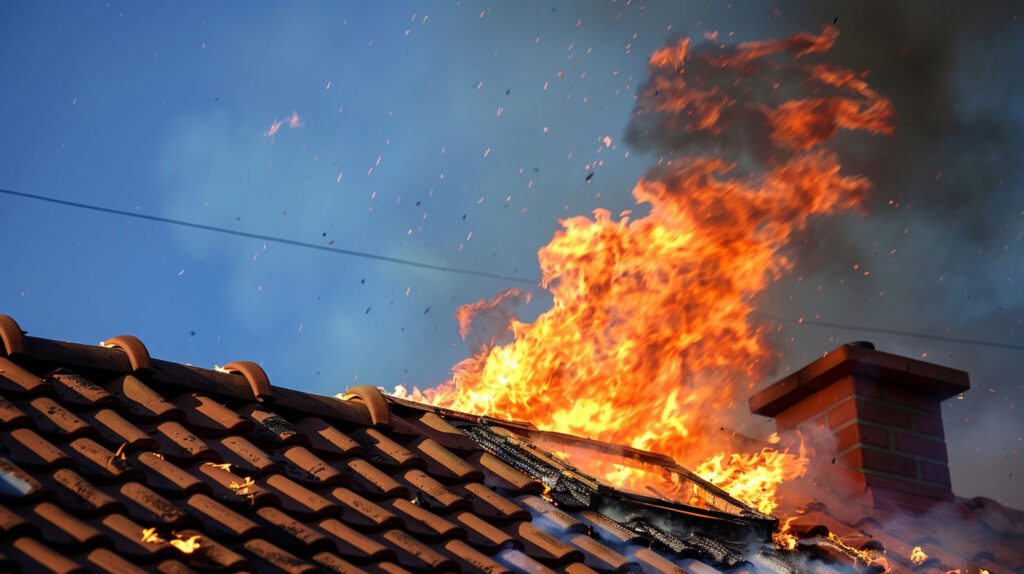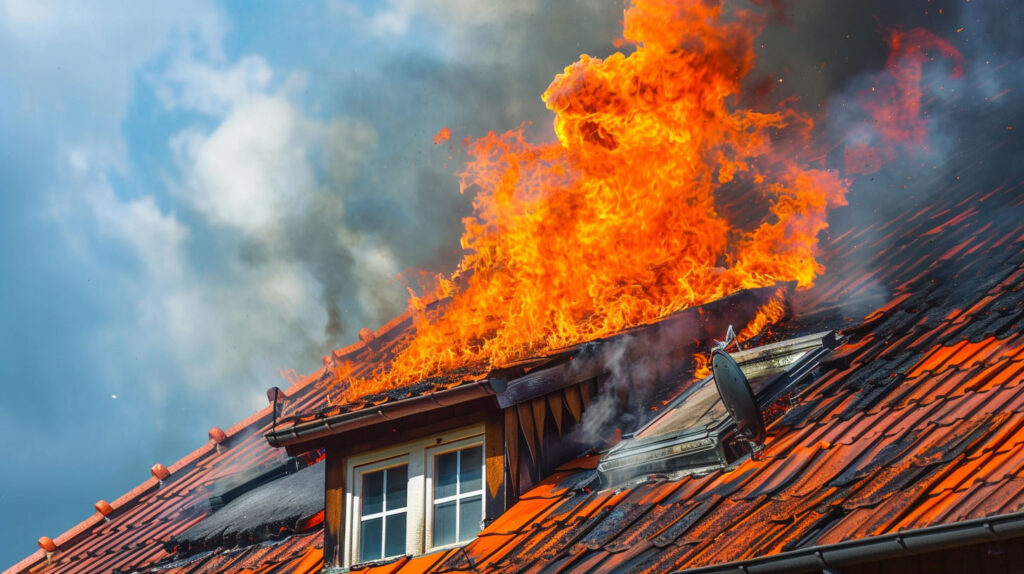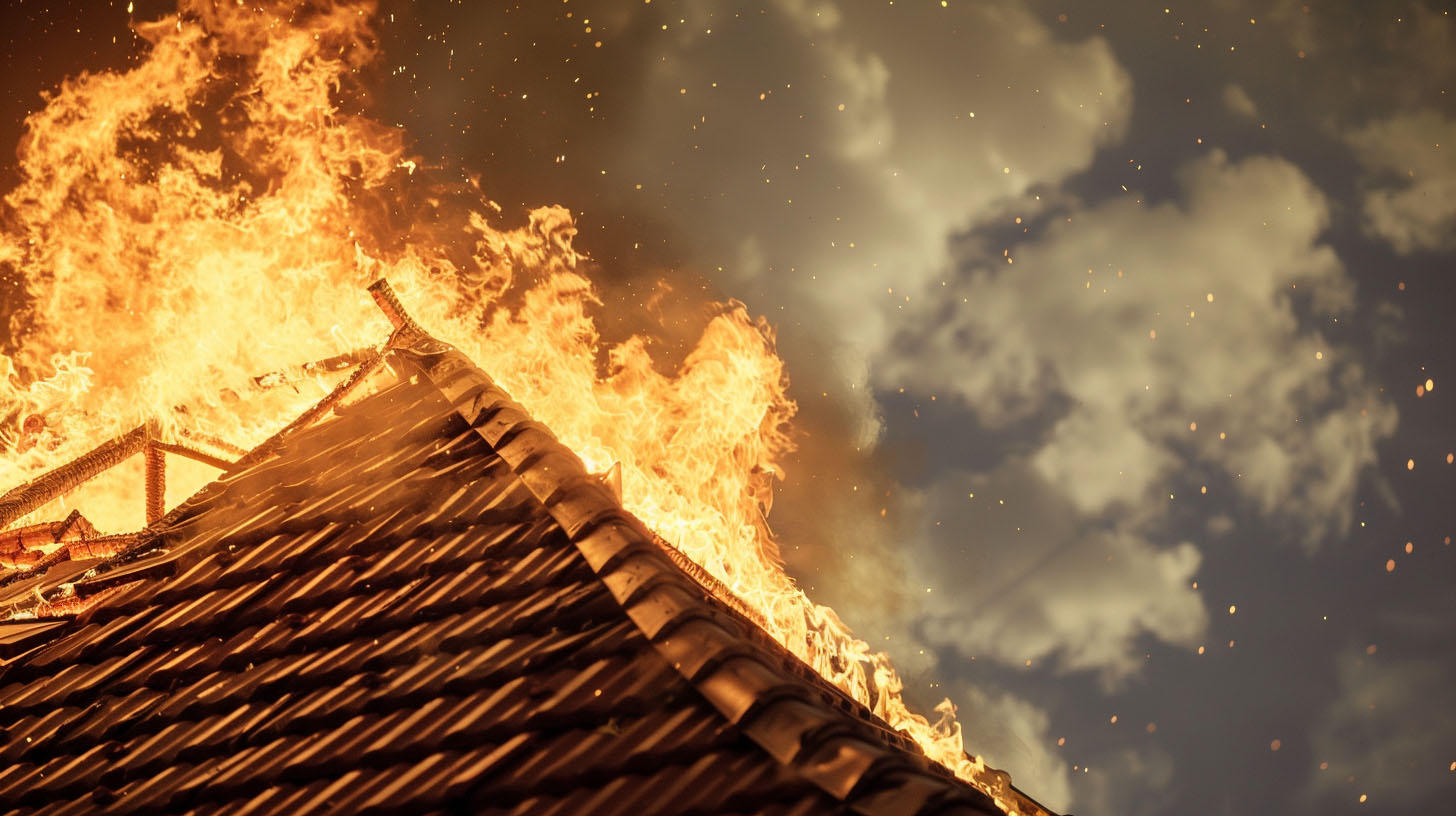What Makes a Roof Fire-Resistant?
Fire resistance in roofing plays a vital role in safeguarding homes from potential damage. With wildfires and extreme heat on the rise, selecting the right roofing material ensures better safety. Using fire-resistant materials protects your roof from high temperatures, flames, and the rapid spread of fire, offering peace of mind to homeowners. At Specialist Roofing & Repair, we specialize in ensuring your roof is both durable and protective to shield your home and loved ones effectively Long Beach, CA.
Understanding Fire Resistance in Roofing
Fire resistance refers to a material’s ability to withstand direct flames and prevent the spread of fire. It involves the roofing’s capacity to maintain its structural integrity under extreme heat, which significantly reduces damage. Materials like slate, metal, and clay tiles are inherently resistant to fire, making ideal for fire-prone regions.
Choosing a roof with a high rating not only protects your property but also prolongs the roof’s lifespan. Understanding fire resistance helps homeowners make informed decisions to enhance safety and long-term investments.
How Fire Resistance is Rated (Class A, B, and C)
Fire resistance is assessed through a classification system that categorizes roofing materials into Class A, B, and C. Class A materials, like metal and slate roofs, offer the highest level of protection against severe fire exposure, effectively resisting flames and radiant heat. Class B and C materials, which can include many asphalt and wood shingles, provide moderate to low fire resistance, respectively. Choosing the right roofing material based on these ratings is essential to enhance structural integrity and ensure safety in residential homes.

The Importance of Fire-Resistant Roofs in Long Beach, CA
In Long Beach, CA, fire-resistant roofs are essential due to the region’s exposure to extreme heat and strong winds that exacerbate risks. Residential homes here benefit significantly from roofs designed to minimize fire spread and withstand flames. Fire-resistant materials not only protect against damage but also provide durability against the area’s challenging weather conditions.
Proper installation of materials like metal or slate tiles ensures that your investment offers maximum protection. Severe fire exposure can cause significant property damage if the roofing isn’t adequately rated and installed. Choosing the right system provides both safety and peace of mind.
Key Materials Used in Fire-Resistant Roofs
For optimal results, it’s essential to pair these materials with proper underlayment and quality installation. At Specialist Roofing & Repair, we partner with top brands like Owens Corning, Polyglass, and CertainTeed to deliver reliable, fire-resistant roofing solutions tailored to your home’s needs.
Metal Roofing: Benefits and Fire Performance
Metal roofing is a standout choice for resistance due to its noncombustible properties, making it ideal for high-temperature areas. Its benefits include:
- Withstanding high heat without catching fire.
- Superior durability and long lifespan of 40 to 70 years.
- Corrosion resistance while requiring low maintenance.
- Energy efficiency, due to its ability to reflect radiant heat.
Additionally, metal roofing systems that combine a Class A-rated underlayment provide robust protection. Minimal upkeep and exceptional performance under extreme conditions make metal a reliable and modern choice for homeowners.
Asphalt Shingles and Their Fire Ratings
Asphalt shingles, especially fiberglass-backed variants, are a popular fire-resistant option with affordable pricing. Commonly Class A rated, resist fire spread for up to two hours, making suitable for residential applications.
However, asphalt shingles require proper installation with resistant underlayment for maximum effectiveness. May need frequent replacements but come in various colors and styles for design flexibility. Homeowners seeking cost-effective fire protection often choose this readily available roofing material. However, proper maintenance ensures continued performance.
Advanced Fire-Resistant Roofing Options
For homeowners seeking premium resistance, advanced options like clay, concrete, and synthetic roofing provide unparalleled protection. These materials excel under extreme weather conditions, ensuring long-lasting durability.
Products such as slate and composite roofing are constructed with chemical treatments to enhance safety while maintaining aesthetic appeal. Investing in advanced fire-resistant roofing proves beneficial in high-risk areas like Long Beach, combining robust resistance with visual elegance.
Clay, Concrete, and Slate Tiles
Clay, concrete, and slate tiles deliver top-tier fire resistance with added benefits:
- Noncombustibility: Easily achieve Class A fire ratings.
- Aesthetic versatility: Clay and slate tiles enhance architectural designs.
- Exceptional longevity: Slate tiles can last up to 75 years.
- Improved insulation: Reduce heat transfer even in extreme heat.
Though installation costs are higher, their durability and fire rating justify the investment. Homeowners in fire-prone areas can rely on these materials to combine long-lasting protection with aesthetic value.
Synthetic and Composite Roofing Materials
Synthetic and composite roofing materials are designed for better resistance through advanced chemical treatments. These materials mimic the appearance of traditional options like wood or slate while offering enhanced durability and protection.
Advantages include minimal maintenance, better resistance to flames, and affordability compared to natural alternatives. Composite options like recycled rubber tiles also promote eco-friendliness. For homeowners seeking lightweight, high-performance solutions, synthetic materials offer practicality combined with style.

Get in Touch
In summary, the choice of roofing plays a pivotal role in fire safety and can significantly influence the structural integrity of residential homes. Emphasizing robust fire resistance through rated roofing materials—such as metal, clay, or concrete tiles—provides better protection against severe fire exposure and minimizes the risk of significant damage from flames. As an Owens Corning Platinum Preferred Contractor and Polyglass Quantum Contractor, we are committed to investing in the right roofing material, coupled with proper installation and regular maintenance, ensuring an added layer of protection against the dangers posed by extreme weather conditions and combustion risks. Additionally, our BBB A+ Rating reflects our dedication to quality and customer satisfaction.
Frequently Asked Questions
How do I know if my roof is fire-resistant?
To determine your roof’s fire resistance, check its rating (Class A, B, or C). Rated roofing materials like metal or fiberglass-backed asphalt shingles offer high levels of protection. Consult a trusted roofing contractor, like Specialist Roofing & Repair, for professional assessment and guidance.
How to make a roof fire-resistant?
Enhance resistance by choosing rated roofing materials such as metal, slate, or treated shingles. Ensure proper installation with a fire-resistant underlayment, and regularly maintain your roof to keep it in optimal condition. Certified installers like Specialist Roofing & Repair can ensure the highest safety standards.
What makes a ceiling fire rated?
Fire-rated ceilings are designed with additional structural support and fire-resistant materials, like gypsum board treated with chemical retardants. These features enhance fire safety by slowing flame spread and maintaining integrity during high heat exposure. Regular inspections ensure their ongoing effectiveness.
Read our blog: Why Annual Roof Maintenance Pays Off



